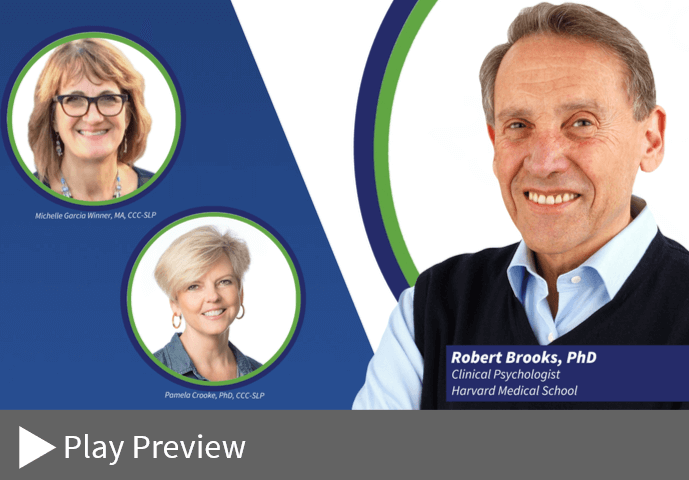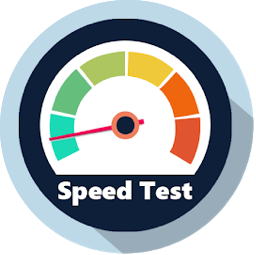
Illuminating instruction and discussion from expert speakers. Walk away with practical strategies, knowledge, and a plan. This course explores:
- Characteristics of a strength-based approach, especially in working with children and adults with learning and social thinking problems
- Strategies for nurturing these seven instincts throughout the lifespan
- The power of “WE-based” thinking and how it’s important for helping our students and clients achieve their goals.
- Why imagining another’s perspective and feelings is critical during social problem solving.
3.5 hours of training and CE credit available for select professionals. For any special accommodations or assistance with resources email us.
Defining 7 Aspects of Tenacity & Exploring Strategies for Social Problem Solving
Replay access through November 30, 2023
Detailed Description
And Who Should Attend
Strategies to Nurture Resilience and Tenacity Across the Lifespan
Robert Brooks, PhD, Clinical Psychologist, Harvard Medical School
Building upon the strength-based approach they have proposed and advocated for years with its focus on reinforcing self-discipline, motivation, hope, and resilience in children and adults, Dr. Robert Brooks and his colleague Dr. Sam Goldstein, have introduced the concept of tenacity. The latter is composed of seven interrelated inborn instincts. These instincts, which are different from fixed patterns of behavior as seen in other species, represent an intuitive way of thinking and acting that contribute to our accomplishments, social relationships, optimism, compassion, resilience, and even survival. In this keynote, Dr. Brooks will identify these seven instincts and offer specific strategies that parents, caregivers, and professionals can use to nurture these forces across the lifespan to improve the lives of both children and adults. Many examples will be used to illustrate the instincts and strategies to reinforce them.
Extend your learning from this keynote with Tenacity in Children: Nurturing the Seven Instincts for Lifetime Success, a new book by Sam Goldstein and Robert B. Brooks, that describes and explains the concept tenacity—the self-determination necessary to fuel and maintain resilience and self-discipline. It provides practical strategies and examples for fostering tenacity in children for a more flexible way of thinking and/or acting throughout their lives to not only cope and persist, but to excel when thrown off course by life’s many twists and turns.
Tenacity Through the Lens of the Social Thinking® Methodology
Michelle Garcia Winner, MA, CCC-SLP; Founder and CEO of Social Thinking & Pamela Crooke, PhD, CCC-SLP; Chief Curriculum Officer
All students and clients need a little help or support at times. Relying on a mentor or wise friend can promote their resilience and tenacity (Brooks, 2021). And developing social competencies, such as social problem solving, self-advocacy, and sharing of one’s vulnerabilities can provide the roadmap for guiding a mentor in how to better understand and provide support for the student. In this keynote, we will provide visual supports and frameworks from the Social Thinking Methodology to connect specific teaching concepts to foster development of social competencies that are clearly critical to building tenacity in our students’ post-pandemic lives.
Topics will include but not be limited to:
- Understanding the power of "WE-based" thinking in working with a mentor.
- Determining how to help your student identify if they have a problem.
- Defining the exact nature of the problem.
- Knowing what it means to solve this problem.
Who Should Attend
The Social Thinking Methodology is used by a wide variety of professionals; including speech-language pathologists, special and general education teachers, social workers, counselors, clinical and school psychologists, occupational therapists, behavior specialists, and school administrators to name a few. It’s also used by family members and caregivers across settings.
Learning Objectives and Agenda
Objectives for Strategies to Nurture Resilience and Tenacity Across the Lifespan
Participants will be able to:
- Describe characteristics of a strength-based approach, especially in working with children and adults with learning and social thinking problems
- List the seven instincts of Tenacity and the role they play in our development and adaptation
- Explain strategies for nurturing these seven instincts throughout the lifespan
Objectives for Tenacity Through the Lens of the Social Thinking® Methodology
Participants will be able to:
- Define the power of “WE-based” thinking and how it’s important for helping our students and clients achieve their goals.
- Define why imagining another’s perspective and feelings is critical during social problem solving.
- Using the thinksheet, “Solving Problems Before They Become Problems,” define three or more steps toward social problem solving.
Agenda
10 minutes Michelle Garcia Winner, MA, CCC-SLP; Founder and CEO of Social Thinking
Dr. Pamela Crooke, PhD, CCC-SLP; Co-developer of the Social Thinking® Methodology and Social Thinking Chief Curriculum Officer
Welcome and introduce Dr. Robert Brooks
1 hour and 10 minutes Dr. Robert Brooks, PhD; Clinical Psychologist, Harvard Medical School
Strategies to Nurture Resilience and Tenacity Across the Lifespan
10-minute break Break
30 minutes Continue keynote: Dr. Robert Brooks, Strategies to Nurture Resilience and Tenacity Across the Lifespan
1 hour and 15 minutes Michelle Garcia Winner, MA, CCC-SLP; Founder and CEO of Social Thinking
Tenacity Through the Lens of the Social Thinking® Methodology
30 minutes Previously Recorded Question and Answer panel with Dr. Robert Brooks, Michelle Garcia Winner, Moderator: Dr. Pamela Crooke
Continuing Education Credit
3.5 hours toward CE credit, if applicable
Click here to see if you can receive CE credit by Profession and by State
We are proud to provide access to continuing education credit for:
- Speech-Language Pathologists
- Educators
- ...and others!
Technical requirements to participate in online training
Streaming compatible browser

The best browser for streaming is Google Chrome. If you are unable to use Chrome, please make sure the version of your browser is the latest and greatest.
Download ChromeHigh-speed internet connection

Make sure you are accessing the online course on a device that is connected to high speed internet—that means your download speed is at least 25Mbps.
Run Internet Speed TestOpen firewall ports

If you are accessing the online course from your school or organization, ask your network administrator if there are any firewall ports that need to be opened.
Learn More


